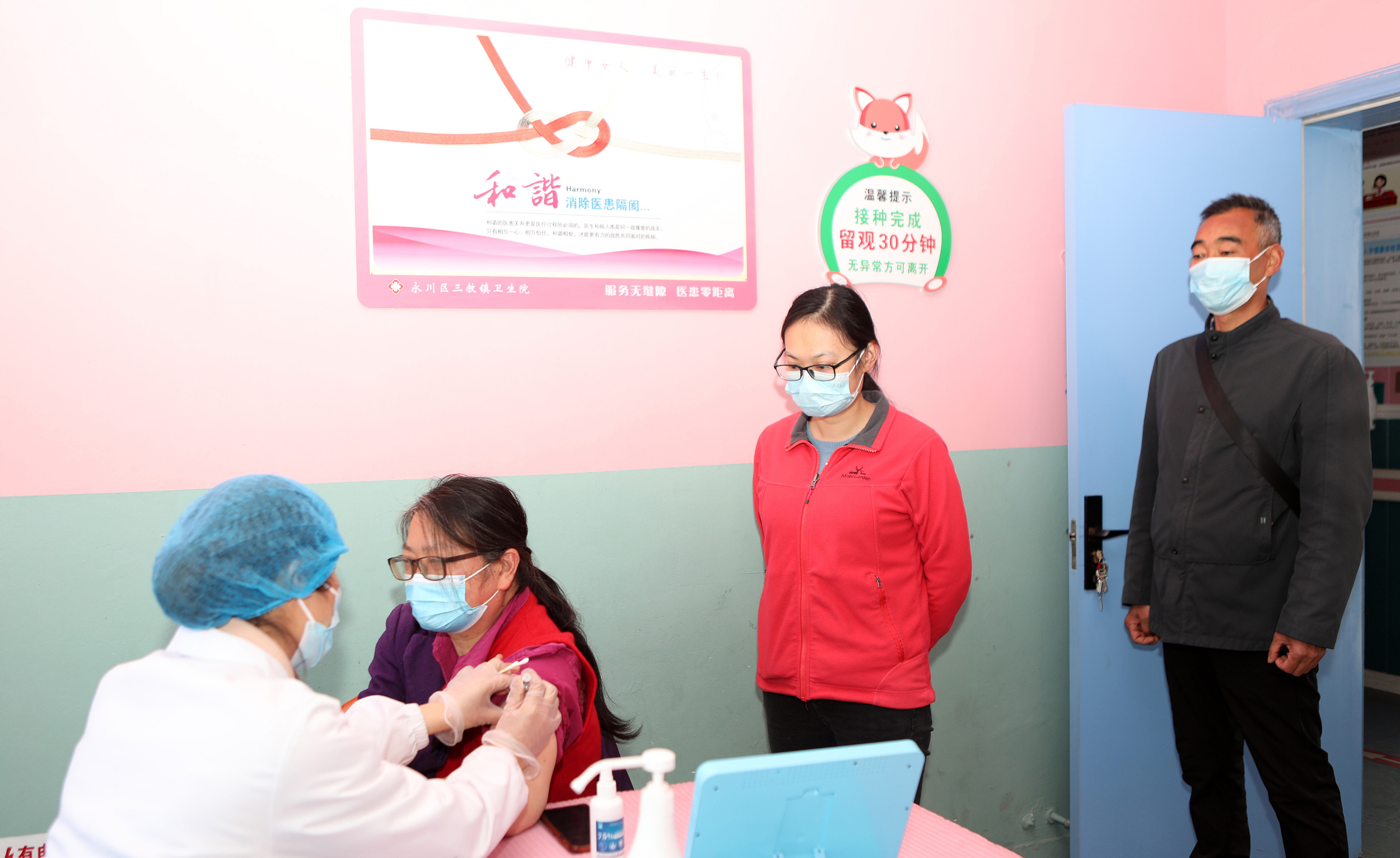Seasonal Flu Questions Answered

Citizens receive flu vaccination in Chongqing, on March 20, 2023. (PHOTO:VCG)
By Staff Reporters
According to the Chinese Center for Disease Control and Prevention, the recent infections of influenza viruses, mainly type A virus, are increasing across the country. Several medical experts were invited by National Health Commission to shed light on some concerned questions, to help people navigate the flu season.
The characteristics of Type A influenza and antiviral medication use
Wang Guiqiang, director of the Department of Infectious Diseases at the Peking University First Hospital, said that Type A influenza is an acute respiratory infection caused by influenza type A virus, which is different from the common cold. The symptoms of seasonal influenza are generally more severe than those of the common cold and can lead to persistent fever, headache, muscle and joint pain, vomiting and diarrhoea, and general discomfort, with the elderly and children prone to gastrointestinal manifestations. Sometimes it can even lead to pneumonia in severe cases, and there is also a risk of triggering exacerbation of underlying illnesses in the elderly.
Influenza is self-limited in most healthy individuals, but early use of antiviral drugs is recommended to people at increased risk of poor outcomes after infection, including people 65 years and older, people of any age with certain chronic medical conditions, pregnant women, and children younger than five years. Antiviral treatment can shorten the duration of illness, ease symptoms and lower the risk of severe illness.
As for the diagnosis of Type A influenza, Tong Zhaohui, vice director of Beijing Chaoyang Hospital, said that one of the most common symptoms of influenza is an abrupt onset of fever, which usually reaches 39 degrees Celsius or above and lasts three to five days, with severe cases lasting five to seven days.
Protect people at high risk of infection
The elderly and children are the vulnerable groups during influenza epidemics. Firstly, it is recommended that infants, children and the elderly with underlying illnesses should be vaccinated before the annual epidemic season; secondly, it is recommended that people at high risk of infections should go out less and wear masks; furthermore, special attention should be paid at day care centers and schools, where children gather. If a child has a fever, it is recommended that he or she stay at home and wait until a full recovery is made.
According to Wang Quan, director of Emergency Department at Beijing Children's Hospital, influenza usually causes mild illness in the majority of children, mainly showing signs of respiratory tract infections. Timely antiviral administration, drinking more water and enough rest can help children recover more quickly. During the flu epidemic, if a child has a slight fever for more than three days or has a temperature of 40 degrees Celsius or higher, or has breathing difficulties, pale face, vomiting and diarrhoea, reduced urine output, confusion and other symptoms, medical help is needed.
Vaccination of high-risk groups for influenza before the onset of the annual flu epidemic can reduce the likelihood of catching the flu. For infants under six months, who are unable to receive the flu vaccine, their caregivers are encouraged to receive flu shots.


